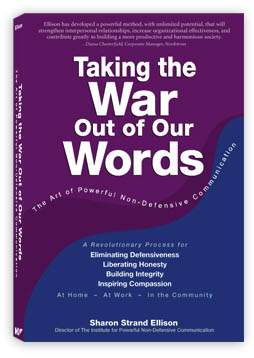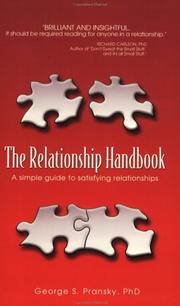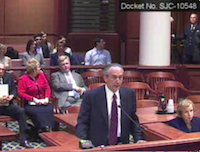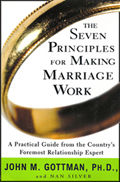Fogg v. Fogg, 409 Mass. 531 (1991), is a postnuptial agreement enforceability case, in which the Massachusetts Supreme Judicial Court (SJC) denied enforcement of the agreement. It was a second marriage for both, and each had children from previous marriages. This is a situation in which a prenuptial agreement could have been very helpful for marital and family peace. If not done prior to the marriage, a postnuptial agreement could have been formulated with a marital mediator, and reviewed by estate planning attorneys followed by adopting an estate plan. This can be extremely helpful to the couples embarking on second marriages.
In Fogg, the Foggs’ marriage was beginning to unravel. The couple entered into a postnuptial agreement in which the Husband agreed to transfer property and assets to the Wife at the Wife’s request. The Husband believed by signing and transferring the property, the Wife would not divorce him, or at least attempt to preserve the marriage.
The trial court found that the Wife was seeking financial gain and her intent was contrary to the representations she made in the agreement about repairing the marriage. Shortly after the signing and the transfer, the Wife filed for divorce.
The SJC affirmed the Trial Court, believing the postnuptial agreement was, in essence, induced by misrepresentation and fraud, because the Wife outwardly pledged to preserve the marriage and was really maneuvering for a better settlement upon divorce.
In famous footnote 2, the SJC wrote “We leave to another day whether agreements made after the parties have been married, and not in anticipation of an immediate divorce, are valid.”
That “other day” came 19 years later, on July 16, 2010, where in Ansin v. Craven-Ansin (SJC-10548) the SJC affirmed that postnuptial agreements are valid and enforceable if certain requirements are met.
An Opinion from Family Divorce Mediation:
Postnuptial agreements are contracts made by spouses after they marry, but not in anticipation of divorce. The fact that postnuptial agreements are not drafted in anticipation of divorce differentiates them from separation agreements. Unlike both prenuptial agreements and separation agreements, postnuptial agreements are not recognized by statute in Massachusetts. Most importantly, the enforceability of a disputed postnuptial agreement in Massachusetts is currently uncertain.
This is so because the last time the Massachusetts Supreme Judicial Court considered postnuptial agreements it ruled: “We leave to another day whether agreements made after the parties have been married, and not in anticipation of an immediate divorce, are valid.” Fogg v. Fogg, 409 Mass. 531, 532 (1991).
Nevertheless, the Fogg court clearly contemplated the potential enforceability of a postnuptial agreement. “Assuming, without deciding, that this type of agreement is valid, it must be free from fraud and coercion.” (Fogg at 532.) “Although we decline to determine whether postnuptial agreements are valid, we note that, if valid, they would at least have to meet the same threshold requirements of antenuptial and separation agreements.” (Fogg at 536.)
Divorcing spouses may decide to incorporate the terms of their postnuptial agreement into their separation agreement at the time of divorce. Parties to divorce might also decide to incorporate some terms and not others, or to negate their postnuptial agreement in its entirety. Problems concerning the enforceability of postnuptial terms disappear when divorcing spouses agree. When parties to divorce dispute the enforceability of their postnuptial agreement, a judge will decide.
Source: http://familydivorcemediation.com
Stanley R. Fogg v. Geraldine Fogg
409 Mass. 531 567 N.E.2d 921 (1991)
Supreme Judicial Court
The Fogg decision reads as follows:
Citation: 409 Mass. 531
Parties: STANLEY R. FOGG vs. GERALDINE FOGG
County: Plymouth
Hearing Date: February 4, 1991
Decision Date: March 11, 1991
Judges: LIACOS, C.J., WILKINS, NOLAN, LYNCH, & O’CONNOR, JJ.
In a divorce proceeding, the judge did not err in refusing to enforce an agreement made by the parties while they were married and not anticipating an immediate divorce, the alleged purpose of which was to preserve the marriage, where the evidence warranted the judge’s findings that the agreement was not free from fraud because the wife, while outwardly pledging to persevere in the preservation of the marriage, was simply concerned with arranging a favorable financial settlement.
[535-537]
COMPLAINT for divorce filed in the Plymouth Division of the Probate and Family Court Department on September 19, 1986.
The case was heard by Sumner Z. Kaplan, J.
The Supreme Judicial Court on its own initiative transferred the case from the Appeals Court.
Monroe L. Inker (Ann Wagner with him) for Geraldine Fogg.
Marshall F. Newman for Stanley R. Fogg.
NOLAN, J. This court has recognized the validity of antenuptial agreements (Osborne v. Osborne, 384 Mass. 591 [1981]), and separation agreements (Knox v. Remick, 371 Mass. 433 [1976]). Today we are presented for the first time with a so called “postnuptial” agreement, one made while the parties are married and not in anticipation of an immediate divorce. The alleged purpose of the agreement in question was to preserve the marriage. The husband claims the agreement is unenforceable because it is void as against public [page 532] policy and, even if valid, it is unenforceable because he signed as a result of the wife’s fraud. The wife asserts that the agreement is valid and binding. The husband filed a complaint for divorce and the wife counterclaimed, seeking specific performance of the “postnuptial” agreement. The judge granted the husband’s motion to dismiss the counterclaim under Mass. R. Dom. Rel. P. 12 (b)(1) and (6) (1990).1 We affirm the judge’s distribution of property and dismissal of the wife’s counterclaim. Assuming, without deciding, that this type of agreement is valid, it must be free from fraud and coercion.2 This contract, according to the findings of the judge, was the product of deception by the wife. Therefore, the agreement is invalid.
The facts that gave rise to this action were found by the judge to be as follows. In 1979, Geraldine Krevosky (wife) was living at 55 Juniper Lane in Pembroke with her two minor children. In 1979, the wife was employed by Fogg, Inc., a corporation owned exclusively by Stanley Fogg (husband). The business of the corporation is land acquisition and site development. Fogg had graduated from Northeastern University in 1959 with a degree in civil engineering. He had organized Fogg, Inc., in 1973. In June of 1979, the husband moved into the wife’s house at 55 Juniper Lane. At the time he moved in, title to the home was in the name of the wife and her former husband. Fogg had also been divorced, and had two adult children by his first marriage.
[Page 533] Beginning in 1978, Fogg, Inc., began acquiring properties in Pembroke collectively known as Edgewater at Pembroke. The parcel consisted of approximately 141 undeveloped individual house lots, parks, and roads. In June of 1980, the corporation conveyed to the husband forty-four of the lots, all of which were still undeveloped. This deed included “lot 44,” the site of the parties’ proposed future marital home. In the summer of 1983, the husband sold several of the lots to a third-party builder for $234,000. At that time, he discharged the mortgages under which the original bank financing was secured for purchase of the whole Edgewater tract.
In 1980, the husband acquired 260 acres of land in the same area as the original acquisition. The mortgages for the 1978 and 1980 purchases were subordinated in 1982 to a $425,000 borrowing by Fogg for development purposes. Fogg paid the 1982 note and mortgage and received a discharge in August, 1983, prior to the marriage. The judge found that, at the time of the marriage, the husband was free of debt to banks and to the owner of certain properties from the 1978 and 1980 purchases. At the time of the marriage, his combined liabilities for all of his parcels of land did not exceed $250,000. The judge determined that at the time of the marriage, the wife’s financial worth, consisting chiefly of $33,000, a one-half interest in the Juniper Lane house, and a Corvette automobile, was substantially less than that of the husband.
The wife, as an employee of the corporation, was privy to almost all of the husband’s land holdings, assets, and liabilities. In the summer of 1983, she still refused to marry him, although he had asked her many times. The judge found that later in the summer, “after [the husband’s] indebtedness was negligible and his assets considerable,” she asked him to marry her and presented him with a wedding band. The parties were married in December of 1983.
The parties continued to live together at Juniper Lane until January 2, 1986. While living at Juniper Lane, the husband gave his wife money with which to run the household and to make the mortgage payments. In addition, in May of [Page 534] 1985, he had paid his wife’s first husband $35,000 for the transfer of his interest in the home to her. In January, 1986, the parties moved to their newly built home on lot 44, 257 Edgewater Drive. This was the husband’s “dream house.”
In 1984 and 1985, the husband continued his business of selling land, depositing the proceeds into his own account. In June, 1986, he purchased an office in Pembroke for corporate purposes. There was no contribution by the wife to the improvement or appreciation of any of the lots held by the husband.
Marital problems occurred as early as February of 1984, over the husband’s daughter. Even though the parties were designing their “dream house” together, they were not getting along and, by the spring of 1985, the marriage had ended for all practical purposes.
By January, 1986, a divorce was contemplated by the parties. At that time, in an apparent attempt to relieve some of the marital friction, the parties executed a trust and an agreement. The validity of this agreement is at issue. In the agreement, the parties stated the belief that, if they were able to agree on disposition of certain assets, the domestic friction would be eliminated. The parties affirmed in the agreement that they were entering into it for the preservation of the marriage. In addition to setting forth a number of property rights which the husband would transfer to his wife, the agreement provided for property dispositions in the event of divorce or the death of one of the parties.
Pursuant to the agreement, the husband: (1) gave $215,000 in cash to the wife; (2) gave his fee simple interest in Edgewater lots 36 and 42 to her; (3) waived any interest in the Corvette automobile, the Juniper Lane house, or the house at 257 Edgewater Drive; (4) gave her a one-half interest in his Mercedes Benz automobile; and (5) agreed to create the Fogg family trust.
The husband gave the wife a check for $215,000 in January of 1986. He had previously given her a check for $100,000 in May of 1985. The judge found that, although she stated in the agreement that she was entering into it to [Page 535] preserve the marriage, after the spring of 1985 “[the wife] was seeking an adequate and secure financial arrangement for herself and the husband was hoping that by providing such an arrangement that marriage would become viable.” There was a change made in the agreement in March of 1986, as a result of further arguments between the parties. The judge stated that he considered the trust and the agreement only in connection with the conduct of the parties. The judge found that the husband had persisted in trying to preserve the marriage while the wife was solely concerned with arranging a satisfactory financial settlement.
At issue is the judge’s refusal to enforce specifically the agreement. The judge refused to adhere to the agreement and made an equitable distribution of the marital assets under G. L. c. 208, Section 34 (1988 Ed.). The wife had filed a counterclaim seeking specific enforcement. The judge granted the husband’s motion to dismiss under Mass. R. Dom. Rel. P. 12 (b)(6). While we decline to determine the validity of so-called “postnuptial” agreements, we rule that the judge did not commit error in refusing to enforce this agreement. Even if this type of agreement is valid, it must be free from fraud and coercion and meet the requirements set forth in Knox v. Remick, 371 Mass. 433, 436 (1976). The judge’s findings indicate that the agreement here was not free from fraud because the wife, while outwardly pledging to persevere in the preservation of the marriage, was simply concerned with arranging a favorable financial settlement. The evidence fully warranted the judge’s findings.
In Knox v. Remick, we recognized that parties may enter into a separation agreement which anticipates divorce, to resolve permanently their rights and obligations, including support obligations. Id. at 436. The judge shall first determine, however, that “the agreement was not the product of fraud or coercion, that it was fair and reasonable at the time of entry of the judgment nisi, and that the parties clearly agreed on the finality of the agreement.” Id. In Rosenberg v. Lipnick, 377 Mass. 666, 673 (1979), we stated that antenuptial agreements, those executed in anticipation of marriage, [Page 536] must be executed fairly, free from “fraud, imposition, deception, or over-reaching.”
Although we decline to determine whether postnuptial agreements are valid, we note that, if valid, they would at least have to meet the same threshold requirements of antenuptial and separation agreements. The agreement before us was signed as a result of the wife’s implied fraudulent promise that she would attempt to preserve the marriage. Thus, it is invalid.
The judge stated in his findings that “[a]n agreement regarding disposition of assets as a condition of keeping the marriage together was sought by [the wife].” The husband signed the agreement believing that, by doing so, his wife would not divorce him or, at least, that she would attempt to preserve the marriage. The judge found that the wife “was solely interested in financial security and financial gain.” He stated that, in entering into the agreement, the wife “was seeking an adequate and secure financial arrangement for herself,” while the husband was hoping that the agreement would make the marriage viable.
The wife’s intentions at the time of signing were contrary to those set forth in the agreement that “the [parties] share the belief that, if they are able to agree upon an orderly disposition of these assets, the cause of any domestic friction and unhappiness will be eliminated, and their marriage will be preserved thereby.” She induced her husband to sign the agreement by outwardly pledging her belief that, if the financial arrangements were made, she would then try to preserve the marriage. While promising to persevere, she was really only concerned with obtaining a favorable settlement of the marital assets.
The judge found that the wife’s conduct during the marriage “in no way contributed to its preservation and in almost every way contributed to its deterioration.” He stated that once the wife “felt she had [an adequate financial] arrangement . . . she told [the husband] she wanted a divorce.” The husband signed the agreement as a result of the wife’s [Page 537] fraudulent and deceptive promise to attempt to maintain the marriage. Therefore, the agreement is unenforceable.
Judgment affirmed.
————————-
1. We note that the judge may have improvidently granted the husband’s motion under Mass. R. Dom. Rel. P. 12 (b)(6), as a procedural matter. The wife was alleging a contract action. A claim was stated. Instead of granting the motion under rule 12 (b)(6), the more appropriate disposition would have been to allow the husband to plead an affirmative defense on the theory that the contract was unenforceable. However, even though he granted the motion, the judge heard testimony on the circumstances of the execution of the contract. He made sufficient findings for us to determine that he believed that the contract was the product of deception by the wife. Therefore, the dismissal under Rule 12 (b)(6) was harmless error.
2. We leave to another day whether agreements made after the parties have been married, and not in anticipation of an immediate divorce, are valid.
Learn more about postnuptial agreements.

 This is a great book if you want to learn how not to jump to conclusions (which are often wrong) during your daily life, whether at work or home. A careful reading of Taking the War Out of Our Words followed by intent work in putting it into practice can greatly assist us in all our personal relationships. The key is to formulate that powerful, neutral, non-accusatory, and musing Non-Defensive Question that will open the floodgates to new information that incorrect assumptions had filtered out. Sharon Ellison also has tapes of her books available on her web site. This book is indeed powerful and life-changing.
This is a great book if you want to learn how not to jump to conclusions (which are often wrong) during your daily life, whether at work or home. A careful reading of Taking the War Out of Our Words followed by intent work in putting it into practice can greatly assist us in all our personal relationships. The key is to formulate that powerful, neutral, non-accusatory, and musing Non-Defensive Question that will open the floodgates to new information that incorrect assumptions had filtered out. Sharon Ellison also has tapes of her books available on her web site. This book is indeed powerful and life-changing. This book, formerly published under the title “Divorce is Not the Answer”, is a simple, well thought-out and organized little book containing chapters on topics such as “A Fresh Start” and “Compatibility is Only a Thought Away”. Pransky is a practitioner of “Positive Psychology” which essentially posits that “it’s all in our heads”. With that in mind, one can change the trajectory of a marriage by changing a simple thought pattern.
This book, formerly published under the title “Divorce is Not the Answer”, is a simple, well thought-out and organized little book containing chapters on topics such as “A Fresh Start” and “Compatibility is Only a Thought Away”. Pransky is a practitioner of “Positive Psychology” which essentially posits that “it’s all in our heads”. With that in mind, one can change the trajectory of a marriage by changing a simple thought pattern.
 Gary Chapman, author of the longstanding megaseller The Five Love Languages, uses his years of marriage counseling and leading marriage seminars as the basis for his thesis that marriages repeatedly go through periods that can be characterized by the seasons of the year. He begins by describing winter, times when marriages are marked by “coldness, harshness, and bitterness.” Spring is “where most marriages begin,” while summer is filled with fun. He compares an autumn marriage to “the falling of the leaves.” Chapman offers detailed explanations of the emotions, attitudes and actions of the marriage seasons as well as the pros and cons of each. The book’s second section provides seven strategies to enhance or change the marriage seasons, from dealing with past failures and speaking your spouse’s love language to “maximizing differences” and becoming a positive influence. Chapman also specifically addresses how to improve a marriage where a spouse has no desire to change. While it’s valuable to have this information in one place, this book isn’t different from what Chapman has written, said and taught many times before. Clear writing, tested strategies and good stories are here, but new revelations are not.
Gary Chapman, author of the longstanding megaseller The Five Love Languages, uses his years of marriage counseling and leading marriage seminars as the basis for his thesis that marriages repeatedly go through periods that can be characterized by the seasons of the year. He begins by describing winter, times when marriages are marked by “coldness, harshness, and bitterness.” Spring is “where most marriages begin,” while summer is filled with fun. He compares an autumn marriage to “the falling of the leaves.” Chapman offers detailed explanations of the emotions, attitudes and actions of the marriage seasons as well as the pros and cons of each. The book’s second section provides seven strategies to enhance or change the marriage seasons, from dealing with past failures and speaking your spouse’s love language to “maximizing differences” and becoming a positive influence. Chapman also specifically addresses how to improve a marriage where a spouse has no desire to change. While it’s valuable to have this information in one place, this book isn’t different from what Chapman has written, said and taught many times before. Clear writing, tested strategies and good stories are here, but new revelations are not. According to most relationship books, the key to a solid marriage is communication, communication, communication. Phooey, says John Gottman, Ph.D., author of the much-lauded Why Marriages Succeed or Fail. There’s much more to a solid, “emotionally intelligent” marriage than sharing every feeling and thought, he points out–though most couples therapists ineffectively (and expensively) harp on these concepts.
According to most relationship books, the key to a solid marriage is communication, communication, communication. Phooey, says John Gottman, Ph.D., author of the much-lauded Why Marriages Succeed or Fail. There’s much more to a solid, “emotionally intelligent” marriage than sharing every feeling and thought, he points out–though most couples therapists ineffectively (and expensively) harp on these concepts.